Publications
Articles, publications, books, tools and multimedia features from the U.S. Institute of Peace provide the latest news, analysis, research findings, practitioner guides and reports, all related to the conflict zones and issues that are at the center of the Institute’s work to prevent and reduce violent conflict.
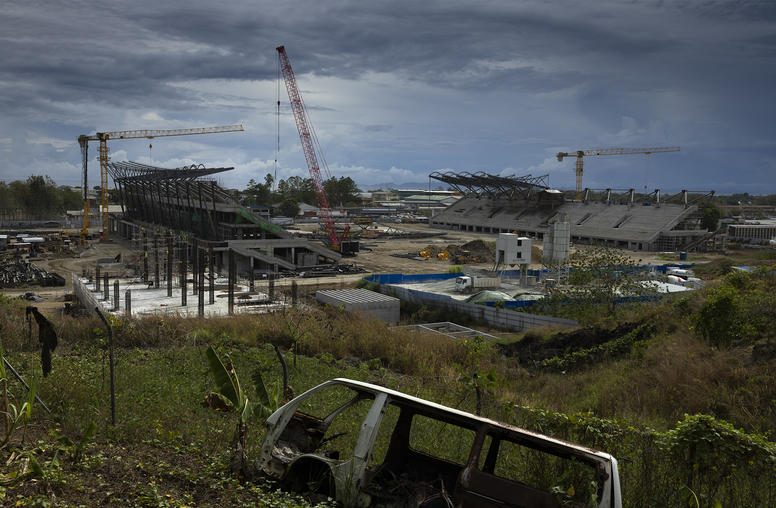
Financially Weak Pacific Island States Are Vulnerable to China
The Pacific island nation of Nauru this week switched diplomatic recognition from Taiwan to China, a move that could seem of little consequence in a largely symbolic competition between Taipei and Beijing. But the move has a deeper significance for the United States.
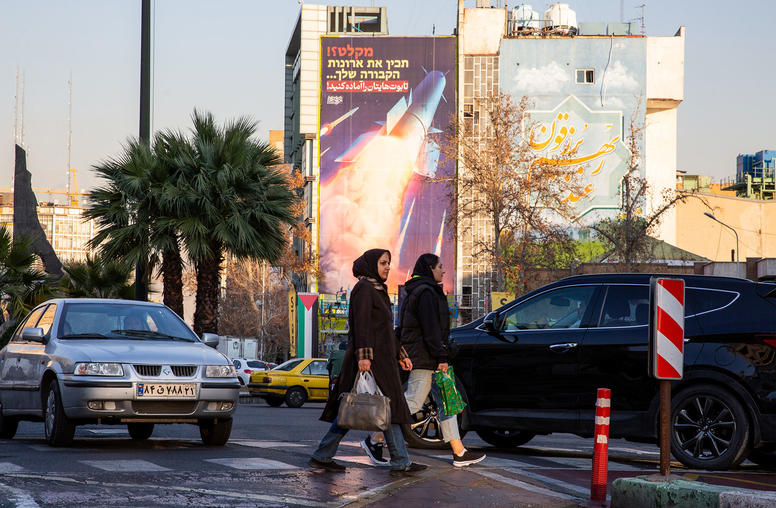
Making Sense of Iran-Pakistan Cross-Border Strikes
In a surprising turn on January 16, Iran launched missile strikes into Pakistan’s Baluchistan province, claiming it had hit two strongholds of anti-Iran insurgent group Jaish al-Adl (Army of Justice). Iran announced the attack in Pakistan concurrent to its strikes in Iraq and Syria. Less than two days later, Pakistan hit back with not only missiles but also fighter jets in Iran’s Sistan-Baluchistan province — claiming to target hideouts of anti-Pakistan ethno-nationalist insurgents operating from Iranian soil.
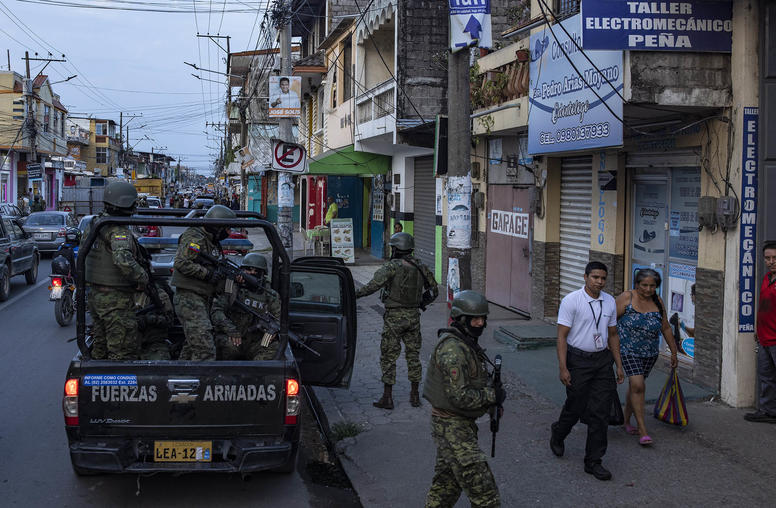
No es demasiado pronto para hablar sobre un Plan Ecuador
Desde que asumió la presidencia del Ecuador el pasado 23 de noviembre de 2023, Daniel Noboa ha enfrentado una escalada de violencia que culminó la semana del 8 de enero con disturbios en cárceles, retención de policías, atentados con bombas, saqueos y el dramático secuestro de presentadores de televisión durante una transmisión en vivo. Noboa respondió imponiendo un estado de emergencia, abriendo así el camino para que las Fuerzas Armadas enfrenten a 22 pandillas clasificadas como "organizaciones terroristas". Dado el poder de estas organizaciones criminales transnacionales y nacionales, no es demasiado pronto para considerar un aumento en el apoyo internacional a Ecuador, mediante una versión más modesta del Plan Colombia orientada hacia las comunidades.
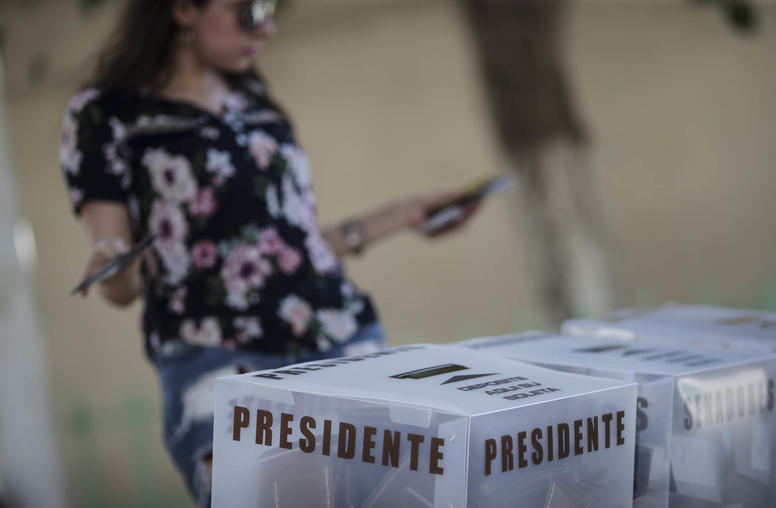
Un avance sobre las elecciones de 2024 en América Latina
En los últimos años, el sentimiento anti-oficialista se ha apoderado de la mayoría de América Latina, moviendo el péndulo electoral hacia la izquierda en México, Colombia, Honduras y Brasil, trastocando las coaliciones corruptas que durante mucho tiempo han gobernado en Guatemala y entregando la presidencia de Argentina a un autoproclamado "anarcocapitalista". Sin embargo, el 2024 podría resultar ser un buen año para los candidatos del oficialismo. En los cinco países con elecciones este año —El Salvador, Panamá, República Dominicana, Uruguay y México—, los aspirantes de los partidos gobernantes, al menos hasta ahora, encabezan las encuestas.
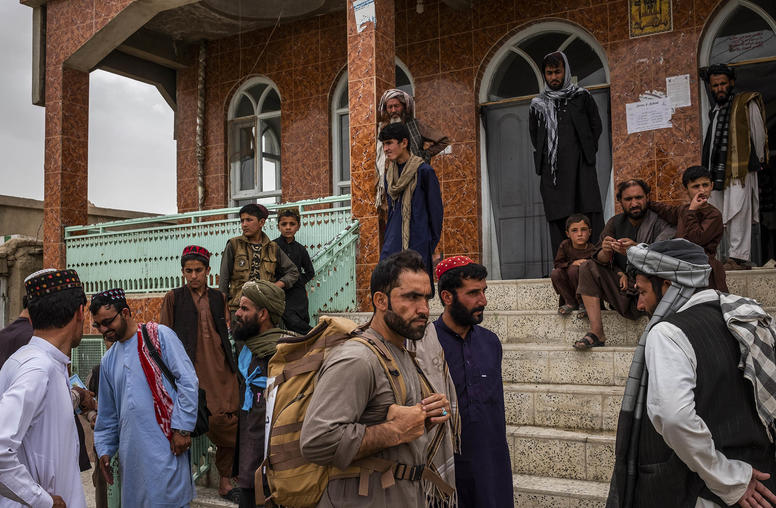
In Religious Conflicts, Bolstering the Role of Military Chaplains
In the 2020s, how urgently should the U.S. military prepare to address religious facets of armed conflicts? Violence from Beirut to the Red Sea this month threatens to spread the Israel-Hamas war regionwide. Violence fueled through religious identities and extremisms also afflicts Asia and Africa. Russia manipulates religion to justify its invasion of Ukraine. However, simultaneously, religious ideas can help resolve conflicts. The United States should seize a current opportunity to improve its ability to navigate the religious terrain of conflicts with enhanced training and roles for an often under-appreciated resource: military chaplains.

Taiwan’s Democracy Prevailed Despite China’s Election Interference
The election of Lai Ching-te, or William Lai, as Taiwan’s next president despite firm opposition from China is a positive sign that democracy is alive and well on the island nation. Nevertheless, the fact that Lai, whom China has deemed a “troublemaker” and “separatist,” won by a narrow margin, and his Democratic Progressive Party (DPP) lost its majority in the Legislative Yuan, will be seen in Beijing as an acceptable outcome, as it restricts Lai’s ability to advance his agenda and reveals the limits of the DPP’s appeal.

Is China Eyeing a Second Military Base in Africa?
For over three decades, every Chinese foreign minister’s first overseas trip of the year has been to Africa. This year continued the tradition with China’s foreign minister, Wang Yi, visiting Egypt, Tunisia, Togo and Côte d'Ivoire. Notably, every one of these countries is coastal. And yet, at a time of continued speculation over China’s next military installation in Africa, none of these countries has featured prominently as potential locations in previous analyses. We might, therefore, reasonably ask what China’s current considerations are around basing in Africa. Faced with an increasingly multipolar and assertive Africa at a time of domestic economic challenge, however, China’s long-term strategy remains unclear.
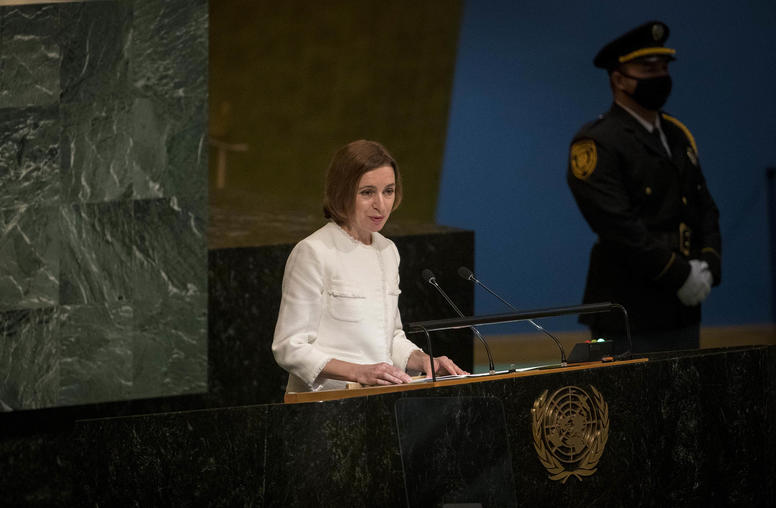
Russia’s War on Moldova Will Be Political in 2024. And Then?
As Ukraine defends its independence and democracy against Russia’s invasion, tiny Moldova confronts a parallel Russian “hybrid war” — and the past 12 weeks have sharpened this battle for Moldova in 2024. Moldova advanced its accession to the European Union and joined EU sanctions against Russians driving the war on Ukraine. Moldova’s government scheduled a referendum to ratify the country’s future as a European democracy after more than 150 years as a militarized frontier of Russian empires. Russia’s malign uses of information, election interference and capacity to trigger a real war — a second front against Europe — heighten the urgency to strengthen Moldova’s resilience and energize its pro-democracy constituency in 2024.
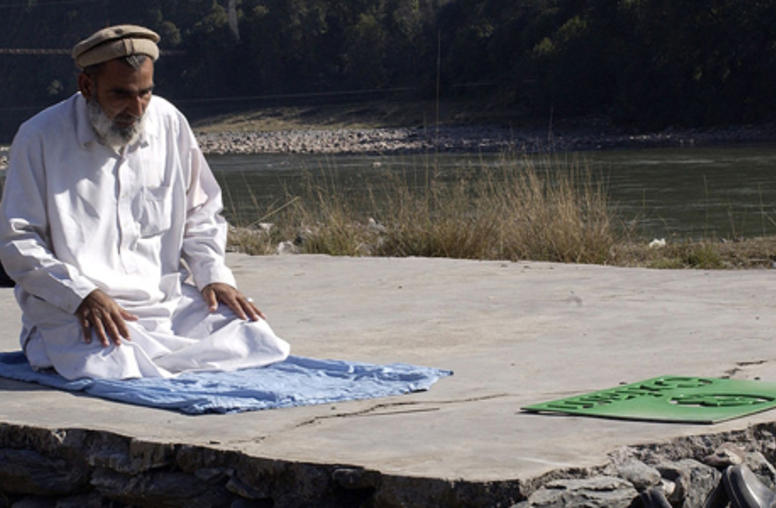
USIP to Train Senior Pakistani Religious Figures in Conflict Resolution
In an effort to strengthen peacebuilding skills inside of volatile but strategically important Pakistan, the U.S. Institute of Peace (USIP) will conduct an unusual training workshop on mediation, conflict resolution and conflict-prevention skills for 20 senior religious leaders from Pakistan in June.
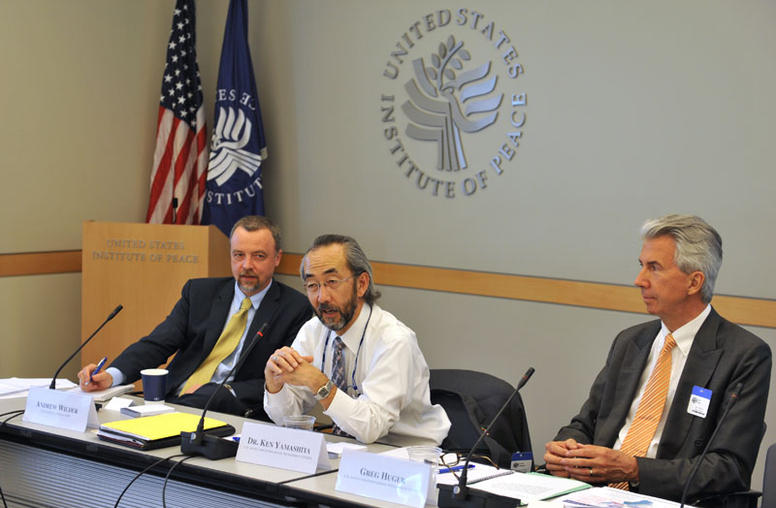
Strengthening Afghanistan's Resilience to Withstand Transition Challenges
The major attacks in Kabul this week have renewed questions on how well the country can deal with such challenges and also meet civilian needs ahead of the security transition in 2014.